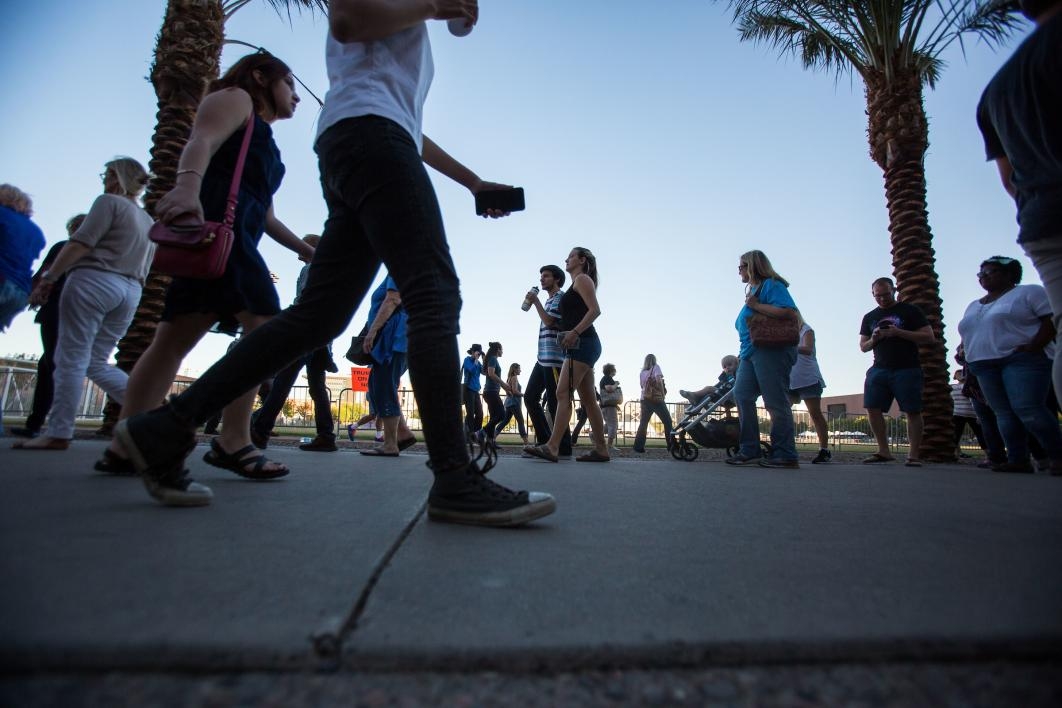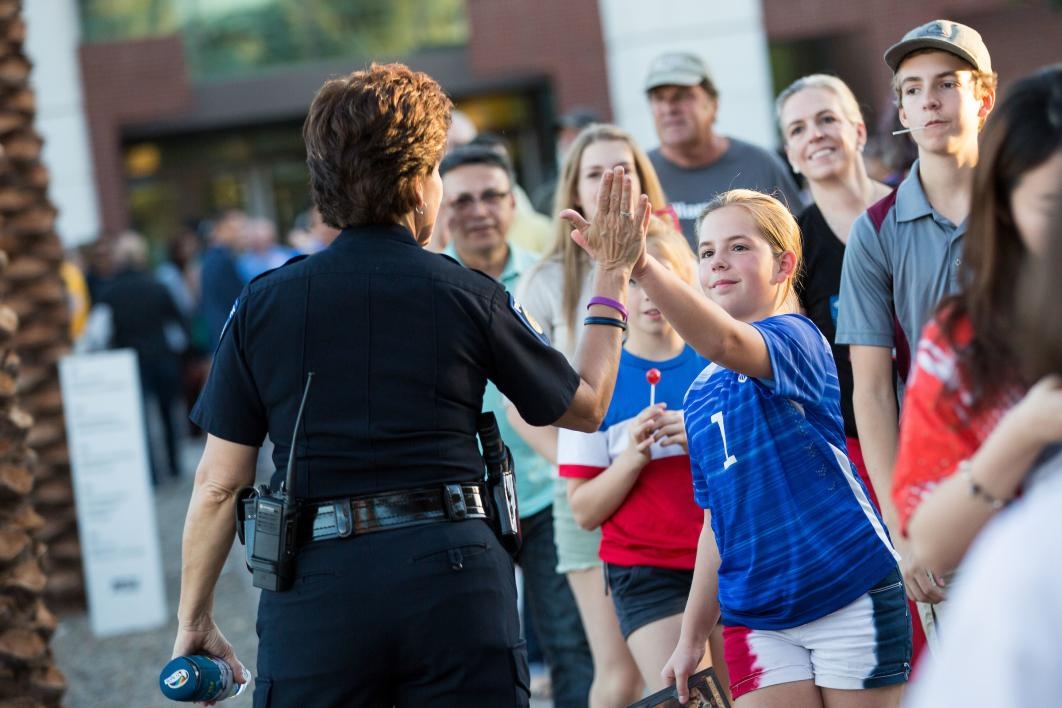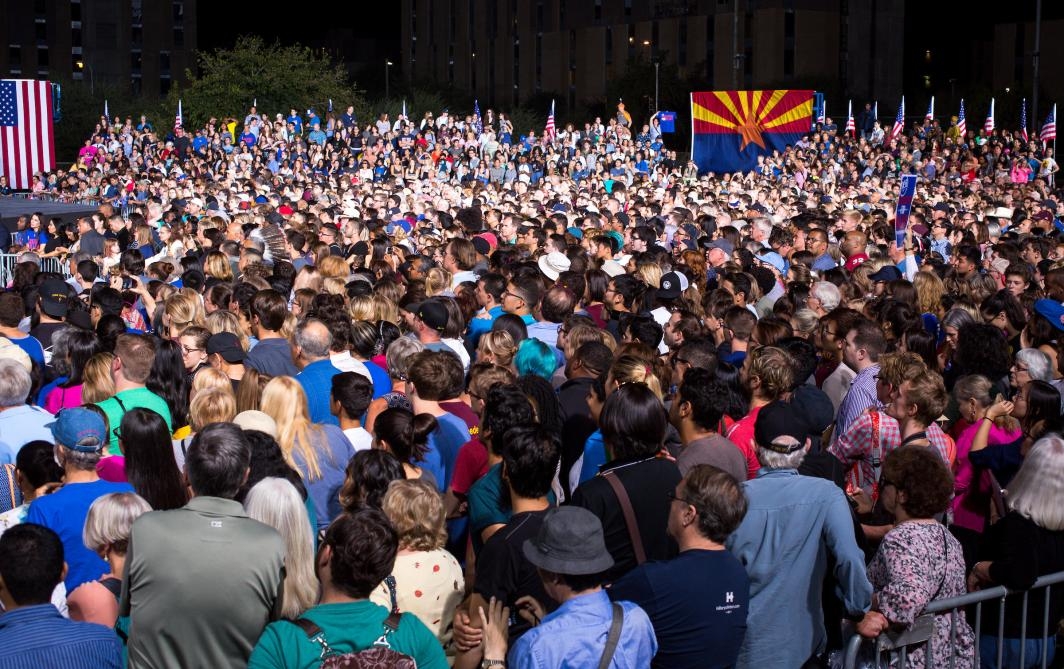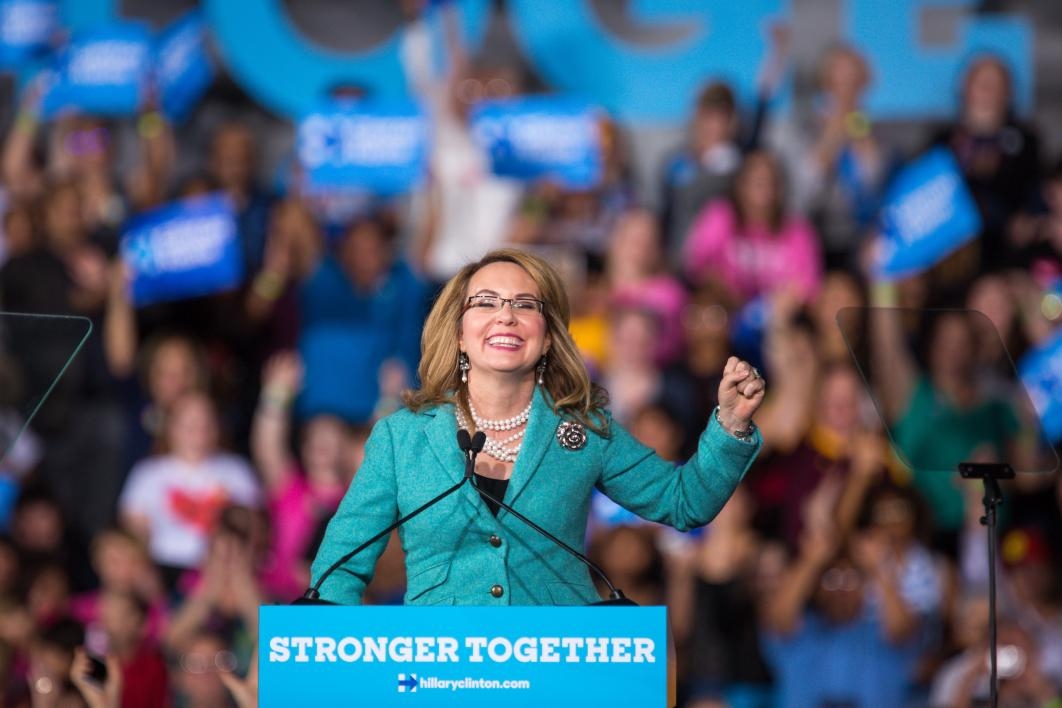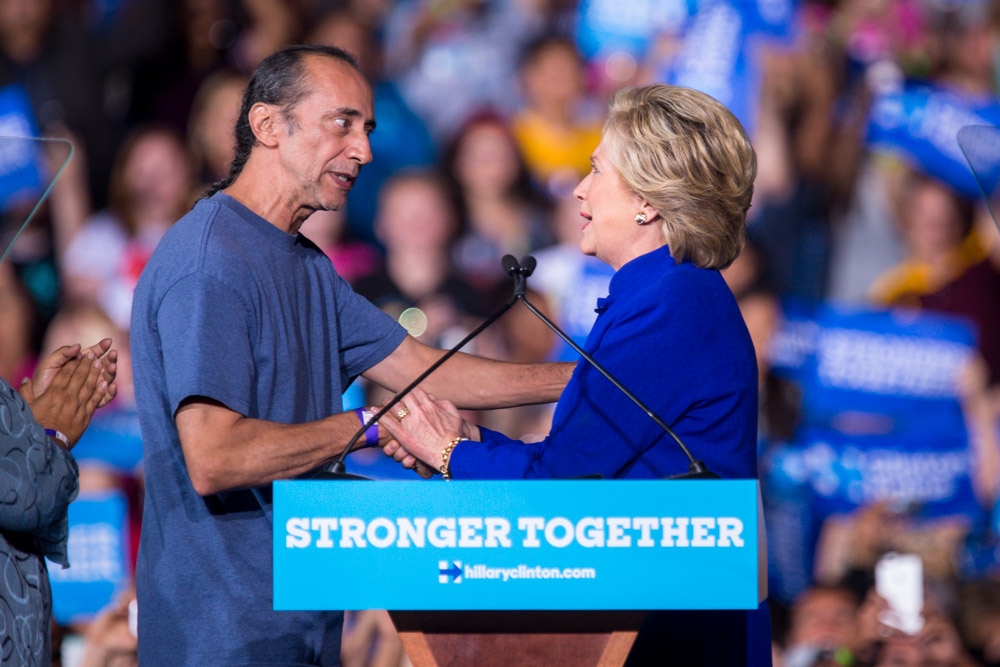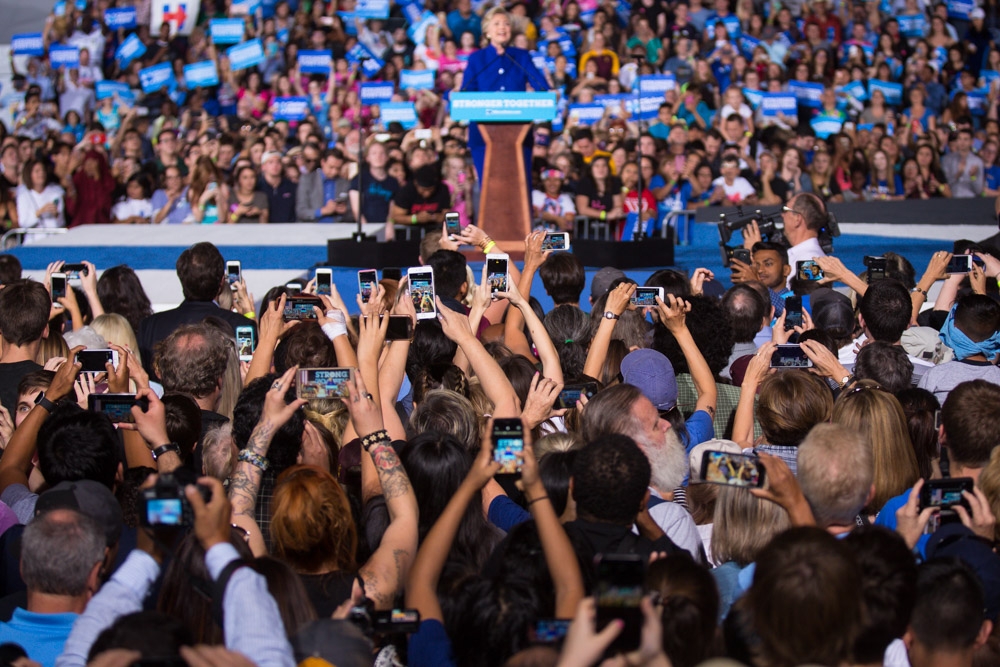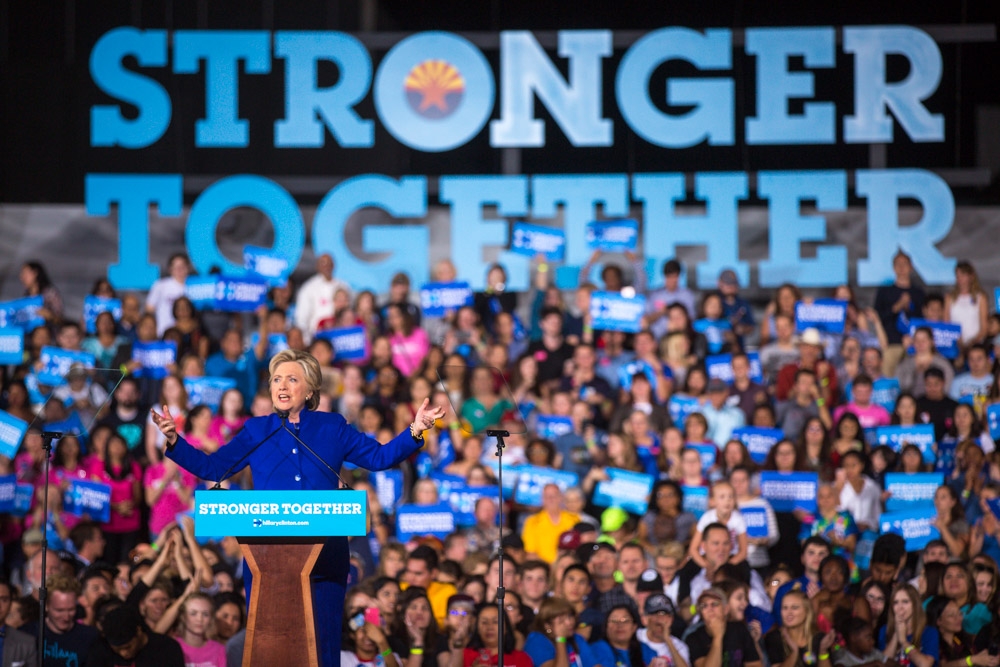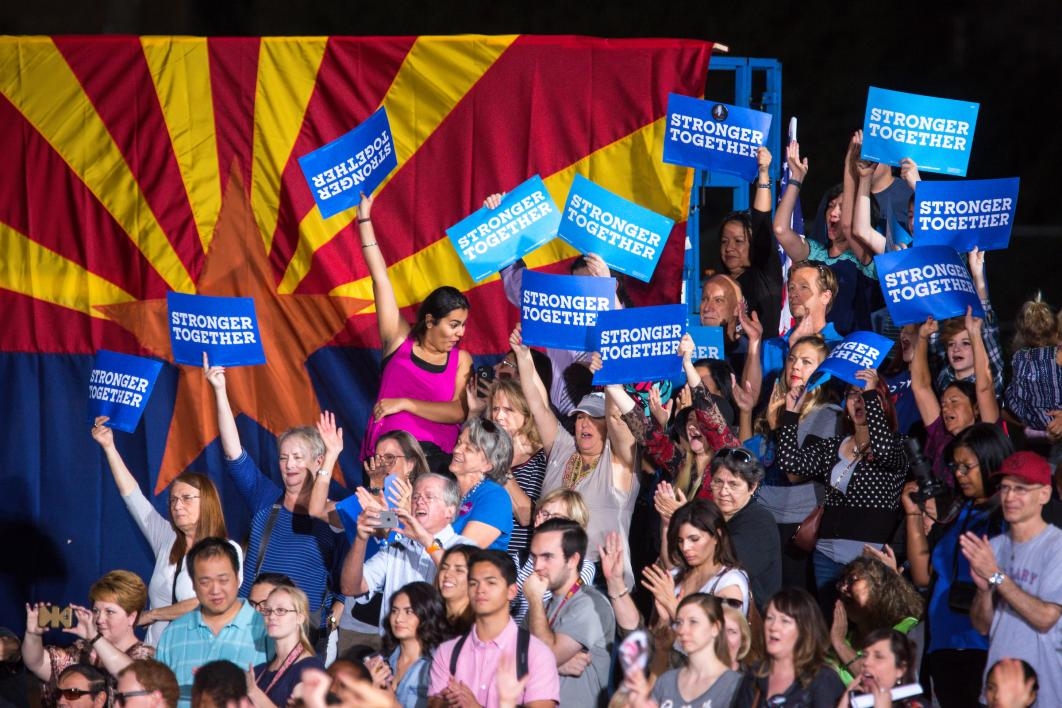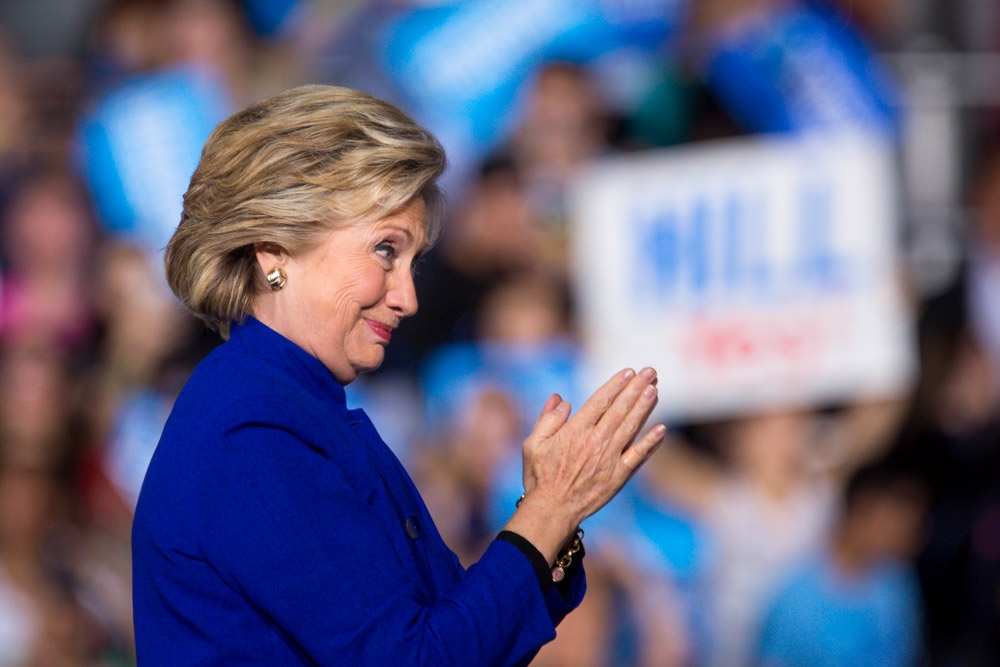At ASU, Hillary Clinton trumpets value of inclusion
Democratic nominee speaks to crowd of more than 10,000 on Tempe campus, amid flurry of Arizona stops from each side
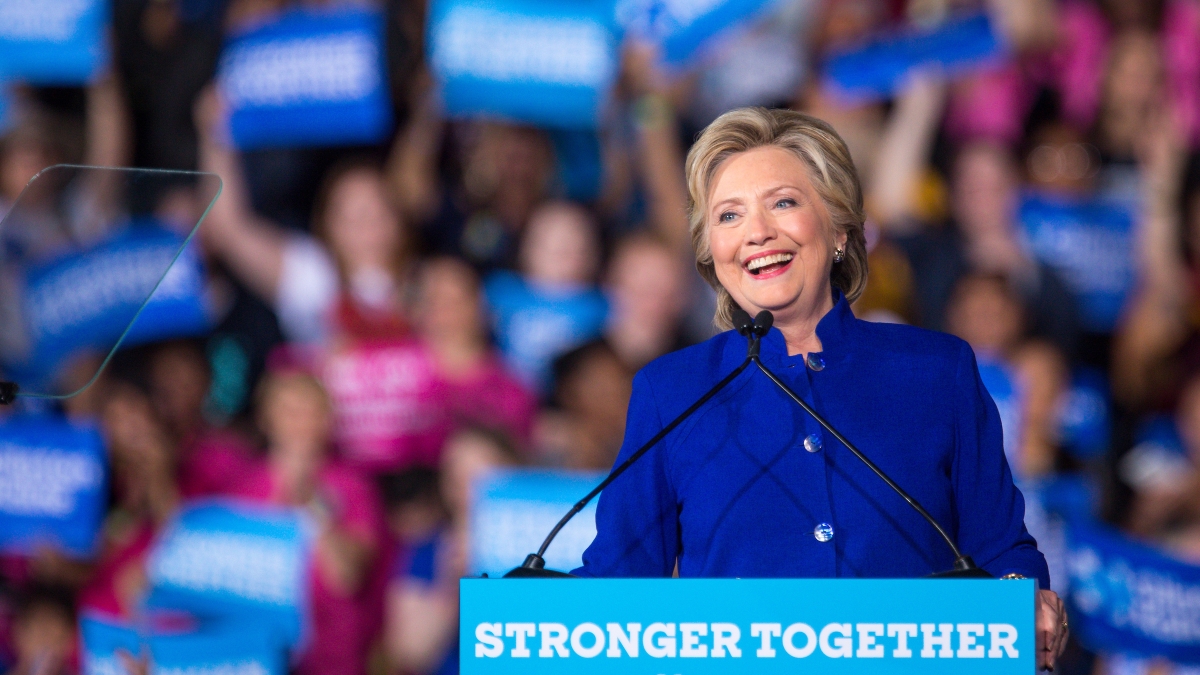
Democratic presidential nominee Hillary Clinton promoted a message of inclusiveness during a speech to more than 10,000 people at Arizona State University on Wednesday night.
“Everything I’ve done is because I’ve been willing to listen to people with all kinds of points of view — those who agree with me and those who don’t agree with me. When you’re in public life you should find common ground to solve problems together,” she said, while criticizing her Republican opponent, Donald Trump.
Clinton touted her college affordability plan and also said she supports a national minimum wage increase, investing in infrastructure and not raising taxes on anyone making less than $250,000 a year, “and finally we are going to guarantee equal pay for women. This is not a women’s issue. This is a family issue. It’s an economic issue.”
The former secretary of state held her “Early Vote Rally” on the intramural fields outside the Sun Devil Fitness Complex on the Tempe campus.
Thousands lined up along the Palm Walk before being allowed onto the field at about 3:45 p.m., where they waited hours before Clinton walked onto the stage at 8:15 p.m.
ASU’s Natalie Newton, a junior majoring in biological sciences, was in the crowd and said she found Clinton’s message inspiring.
“It was like I’ve heard from her before — optimistic and uplifting and unifying,” Newton said.
Arizona has drawn several visits by the two candidates and high-level surrogates during this campaign, and ASU has been a large part of that. Clinton’s daughter, Chelsea Clinton, spoke at the Memorial Union on Oct. 19 and Donald Trump Jr. addressed a crowd at the Sun Devil Fitness Center on Oct. 27.
Clinton said “there is much to admire about ASU,” including a world-class education, the diverse student body and the fact that one-third of students are first-generation college-goers.
“You are proof that the American dream is alive and available to everyone,” she said.
This was Hillary Clinton’s second visit to Arizona while Donald Trump has been to the state seven times, most recently on Oct. 29, though he hasn’t visited an ASU campus.
The vice presidential candidates have made Arizona a priority, as well. Republican Indiana Gov. Mike Pence visited Mesa on Wednesday, and Democrat Tim Kaine was scheduled to visit Tucson and Phoenix on Thursday.
An ASU expert believes Clinton’s visit was an expression of confidence that she can win Arizona.
“I think it is indicative of the battleground nature of the state, and it’s indicative of the confidence that the Clinton campaign has coming into the election,” said Richard Herrera, an associate professor in the School of Politics and Global Studies at ASU.
“It must be that their internal polling and everything they’re seeing shows that Arizona is still in play, and they can afford the time and resources for her to not go to other places, which is a big sacrifice.
“They wouldn’t be here if they didn’t think there was a good shot.”
Herrera said Clinton’s visit just six days before the election “almost forces the Trump campaign to devote resources to Arizona that they might to want spend on Virginia or North Carolina.” Trump’s son, Donald Trump Jr., is scheduled to return to the Valley on Friday.
Another goal of Clinton’s visit is to invigorate her Arizona campaign workers and volunteers.
“As you get down to the last days, these staffers are working many hours. To keep them energized is important, and this is a shot in the arm for them,” Herrera said.
In her speech at ASU, Clinton touched on her plan to make student debt less burdensome.
“If you’re struggling with student debt, we have a plan to ease your burden,” she said.
Clinton wants to cap student-loan repayments at 10 percent of borrowers' income, forgiven after 20 years, with a three-year loan repayment deferment for entrepreneurs. She also proposes that students whose families earn $125,000 or less would pay no tuition to in-state public universities, and she favors free community college.
Trump, in a speech in Ohio last month, called for loan repayments to be capped at 12.5 percent of a borrower’s income and suggested that student debt could be forgiven after 15 years of making full payments.
In previous speeches, he said universities should be held more accountable on how they spend endowments and that he would take steps to limit tuition increases.
Students are worried about loan debt, but also about jobs, according to Kevin Calabrese, president of the ASU College Republicans.
“They go hand in hand. Students who can find jobs when they graduate can pay back their loans, but if they don’t have a job, how can they?” he said. “Donald Trump has proposed solid plans on how to create more jobs in this country.”
The ASU College Republicans are continuing to work on getting out the vote, and members met with Pence in Mesa on Wednesday and will meet with the younger Trump on Friday, he said.
Herrera said that the campaign visits to ASU this fall show that it is a hub of political activity.
“It’s a high-visibility location,” he said.
The ASU early-voting site is at Palo Verde West, room 151, from 10 a.m. to 5 p.m. today and Friday. Any Maricopa County voter can cast a ballot at any early-voting site. On Election Day, students can vote at the Sun Devil Fitness Center on the Tempe campus from 6 a.m. to 7 p.m. That location is also for voters in the Hudson and Tempe precincts, roughly from the 202 to 16th Street and Mill to McClintock. That covers all students in the dorms but not everyone who lives off campus.
Top photo: Democratic presidential nominee Hillary Clinton addresses 13,000 fans packed in the field outside the Sun Devil Fitness Center on ASU Tempe campus Nov. 2. Photo by Charlie Leight/ASU Now
More Law, journalism and politics
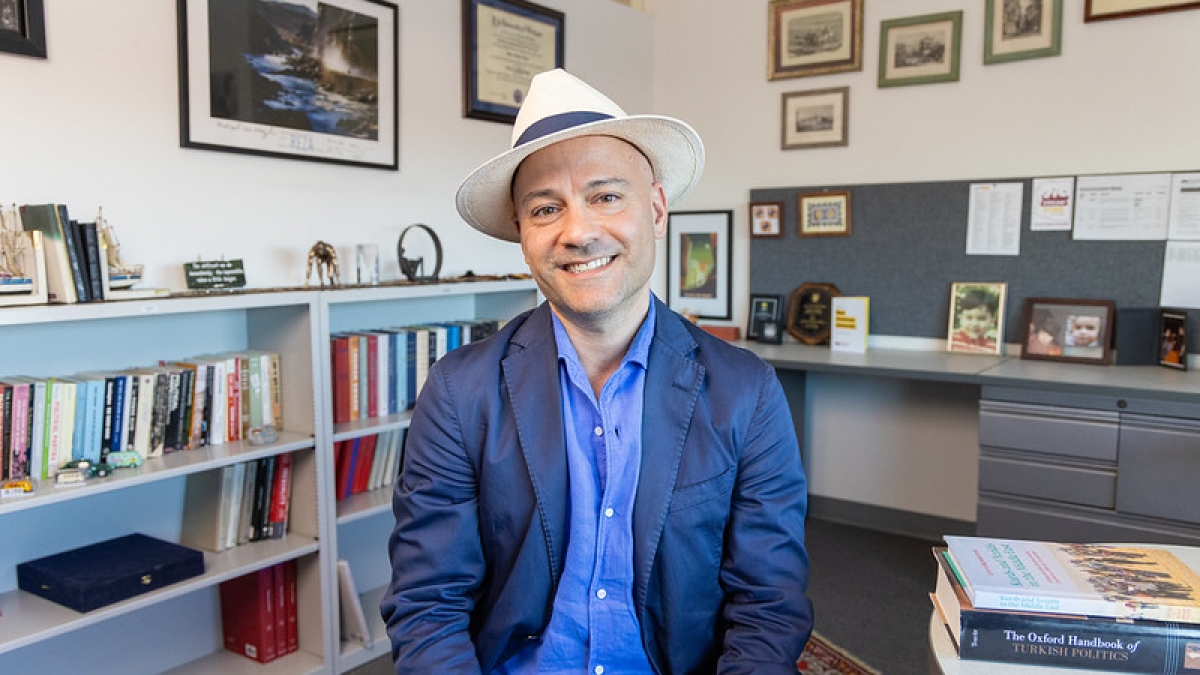
School of Politics and Global Studies director's new book explores mass violence
Why do people commit atrocities and why are certain groups, including religious and ethnic, more vulnerable to large-scale violence? These questions are explored in a new book by Güneş Murat Tezcür…
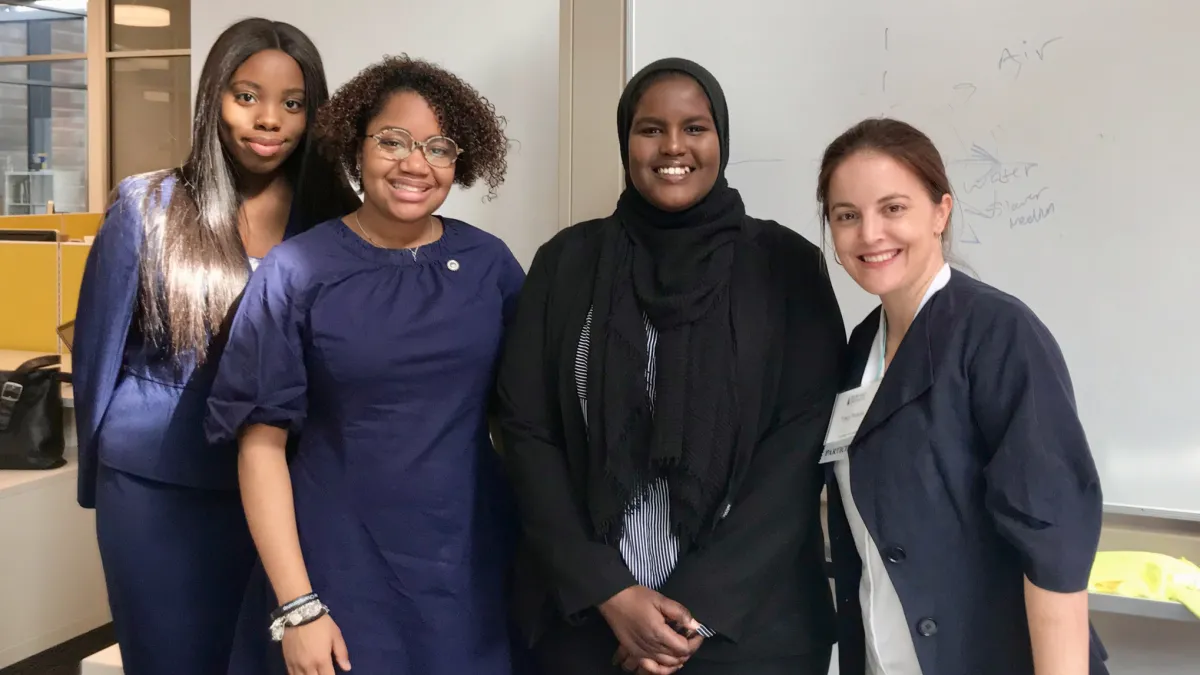
ASU faculty contributing to improvement of Wikipedia
Many academics have a love-hate relationship with Wikipedia. While the website has information about almost anything you can imagine, the credibility of that information is sometimes suspect. Tracy…
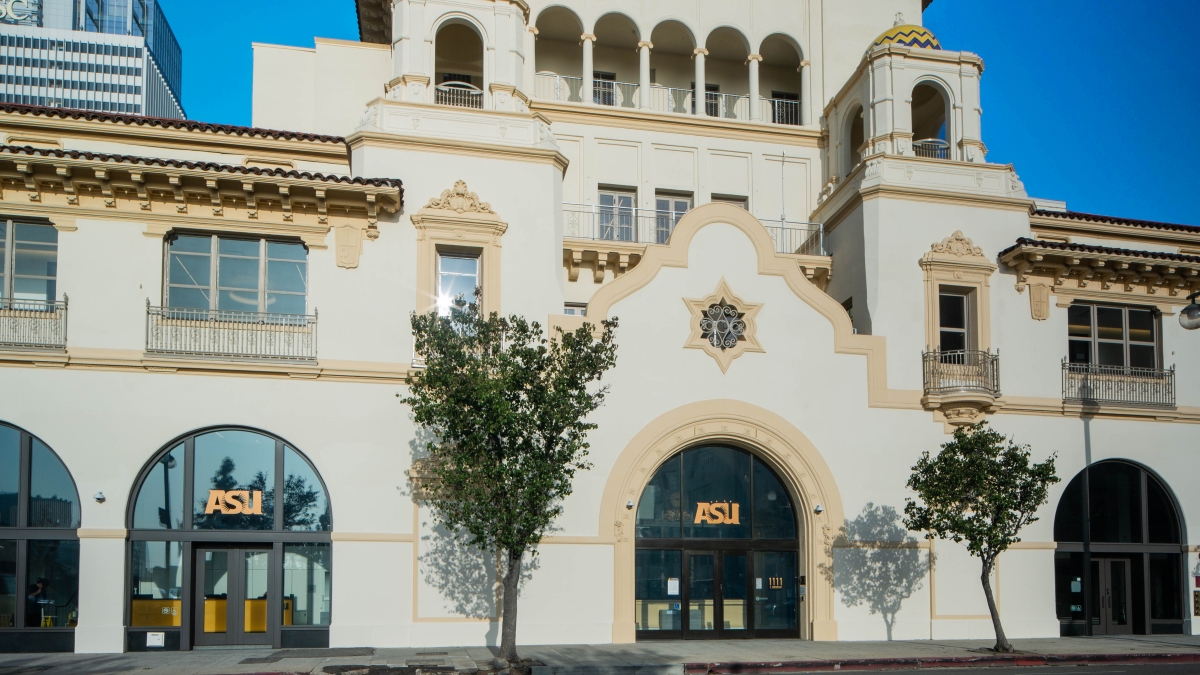
ASU Law students gain vital experience through Los Angeles location
Students at the Sandra Day O’Connor College of Law at Arizona State University may be concentrated in the school’s downtown Phoenix headquarters, but they have more choices than ever when it comes to…
